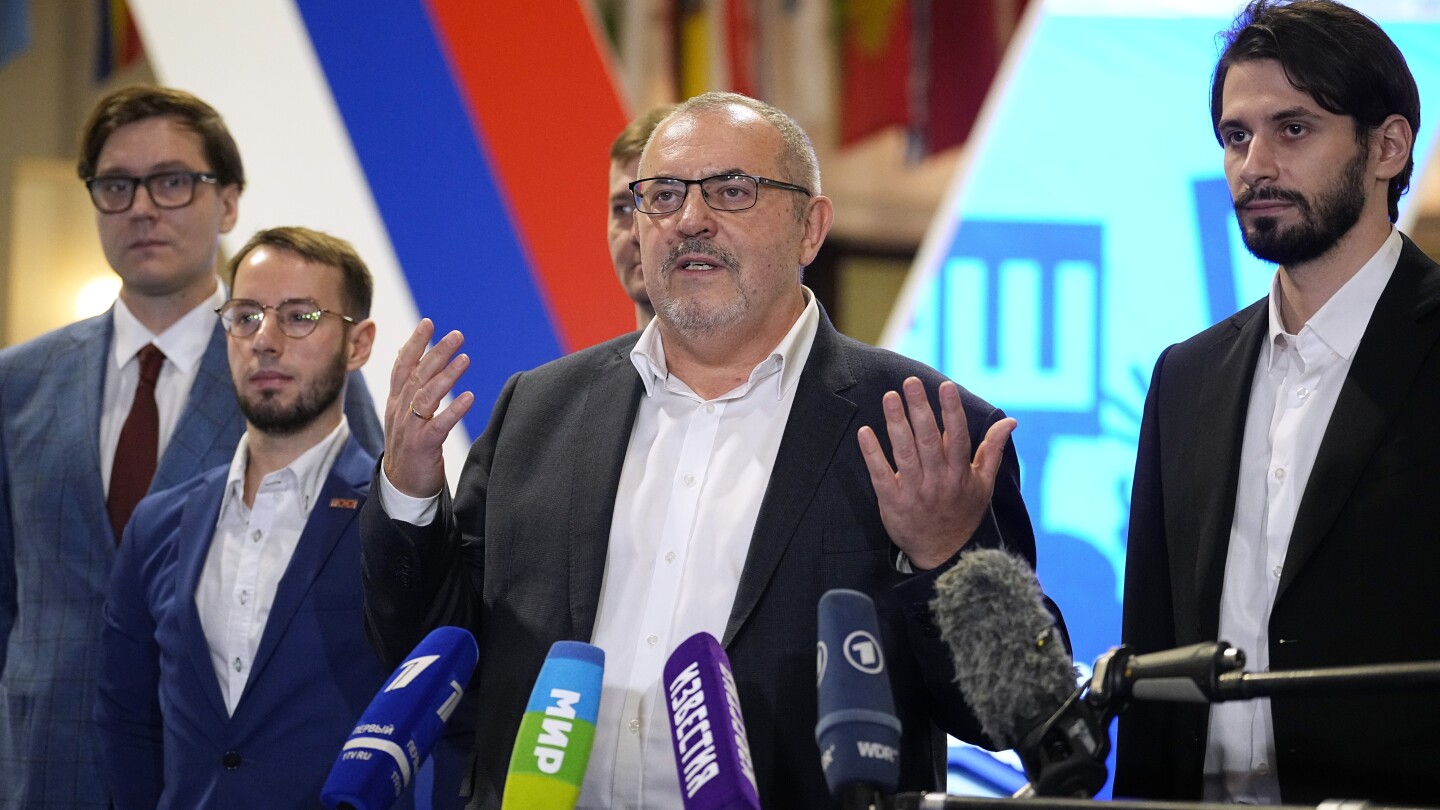Boris Nadezhdin has become a dilemma for the Kremlin as he seeks to run in the March 17 presidential election. The question now is whether Russian authorities will allow him on the ballot.
The stocky, bespectacled 60-year-old local legislator and academic has struck a chord with the public, openly calling for a halt to the conflict in Ukraine, the end of mobilizing Russian men for the military, and starting a dialogue with the West. He also has criticized the country’s repression of LGBTQ+ activism.
“The collection of signatures has gone unexpectedly well for us,” Nadezhdin told The Associated Press in an interview Wednesday in Moscow. “We didn’t expect this, to be honest.”



This is the best summary I could come up with:
The stocky, bespectacled 60-year-old local legislator and academic has struck a chord with the public, openly calling for a halt to the conflict in Ukraine, the end of mobilizing Russian men for the military, and starting a dialogue with the West.
Nadezhdin’s name is a form of the Russian word for “hope,” and although he is highly unlikely to defeat the still-popular Putin, the lines are a rare sign of protest, defiance and optimism in a country that has seen a harsh crackdown on dissent since its troops rolled into Ukraine nearly two years ago.
Waiting to sign a petition in St. Petersburg, Alexander Rakityansky told AP he went through a “period of apathy when I thought I couldn’t do anything.” Now, however, he sees Nadezhdin’s campaign as a chance to exercise his civil rights.
Originally from Belgorod, the Russian border city hit by repeated Ukrainian attacks, Rakityansky said he backed Nadezhdin so his hometown “doesn’t get bombed and people don’t die on the streets.”
For Putin to win a convincing victory, he needs his supporters to turn out and his critics must stay home with no “glimmer of hope,” said Ekaterina Schulmann, a political scientist and nonresident scholar at the Carnegie Russia Eurasia Center in Berlin.
He has appeared as a pundit on Russian television and even criticized the conflict in Ukraine during a talk show on state-controlled NTV in September 2022 — a rare level of visibility not enjoyed by other opposition politicians such as Navalny and Vladimir Kara-Murza, both now imprisoned.
The original article contains 1,335 words, the summary contains 254 words. Saved 81%. I’m a bot and I’m open source!